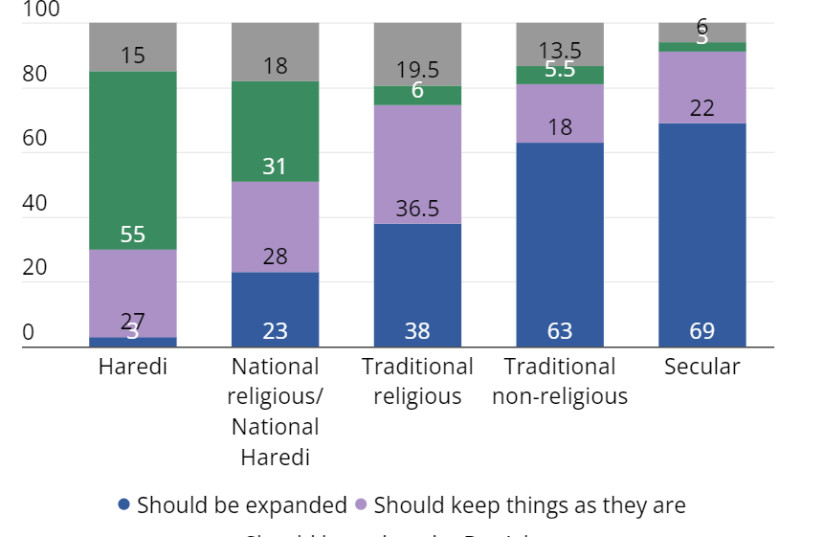The Israel Democracy Index (IDI) released the results of its Israeli Voice Index on Tuesday.
Israeli optimism about the future generally rose across the board. Optimism about the future of national security was at its highest since September 2022, with 46.5% being optimistic, while optimism about the future of democratic rule was the highest it has been since November 2022, also at about 46%.
Optimism about the future of the two topics has been trending closer and closer, with the trend beginning sometime in early 2023. Since then, the two ratings have been extremely close with no more than a three-percentage point difference between the two from June 2023 and no more than a percentage point difference since August.
Since the October 7 attack, optimism has been rising across the board, with Jews and Arabs both becoming increasingly optimistic about the future compared to September 2022.
The Israeli public, across the board, supported the hostage deal, with most members of almost all sectors supporting it. Only two groups did not show majority support for the deal: the National Religious/National Haredi sector, where support was only 41%, and the party Religious Zionism at just 39%. There is a large overlap in the two groups likely explaining this result.

Jews are largely supportive of a resumption of fighting in Gaza regardless of their political orientation (Left: 74%, Center: 84%, Right: 93%), while only a fifth of Arabs (20.5%) supported it.
Increasing women's role in combat
Just over half of the public (51%) support increasing women's ability to serve in combat positions, with religiousness being the deciding factor in support.
US President Joe Biden stated that American support for Israel is contingent on Jerusalem pursuing a two-state solution to the Israel/Palestinian conflict.
In response to the IDI asking survey participants whether they believe that Israel should pursue the solution in order to continue receiving American assistance, 52% of Jews disagreed and 35% agreed, while among Arabs, the results were basically reversed, with only 27% of Arabs disagreeing compared to 55% who agreed.
Jews largely believe the country will be more united after the war with 61% more vs 17% less, while Arabs were more split, with 31% saying more united and 43% saying more divided.
Almost three-fourths of Israelis on average believe that mass civil protests, demanding that those responsible for the failures of October 7 should be held to account, will begin after the war is over (Jews: 73%, Arabs: 64%; Left: 86%, Center: 69%, Right: 74%, total sample: 72%).
